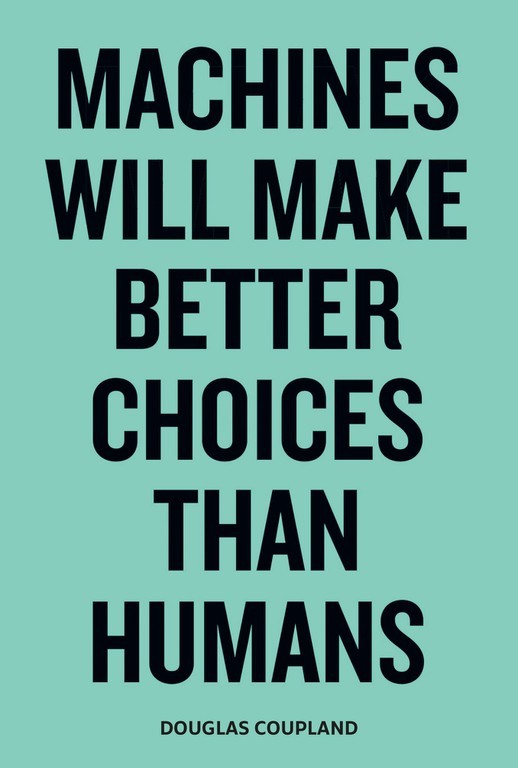
The future is no longer the distant, mythical condition it once was to us. Technology has placed it at our fingertips. It wasn’t so long ago that we marveled at devices that could tell us where we were at that exact moment; it became odd when they recently began to tell us where we would soon be. The most important issue, however, might not be whether a future coproduced and made readily available to us by technology is good or bad, but rather how we want to relate to it as human beings. The three essays by Douglas Coupland collected in this volume address this question and describe how the technological advances that are currently radically revising our notion of the future are shaping us as much as we are shaping them.
Author

Douglas Coupland is Canadian, born on a Canadian Air Force base near Baden-Baden, Germany, on December 30, 1961. In 1965 his family moved to Vancouver, Canada, where he continues to live and work. Coupland has studied art and design in Vancouver, Canada, Milan, Italy and Sapporo, Japan. His first novel, Generation X, was published in March of 1991. Since then he has published nine novels and several non-fiction books in 35 languages and most countries on earth. He has written and performed for the Royal Shakespeare Company in Stratford, England, and in 2001 resumed his practice as a visual artist, with exhibitions in spaces in North America, Europe and Asia. 2006 marks the premiere of the feature film Everything's Gone Green, his first story written specifically for the screen and not adapted from any previous work. A TV series (13 one-hour episodes) based on his novel, jPod premieres on the CBC in January, 2008. ——————————————————— Retrieved 07:55, May 15, 2008, from http://www.coupland.com/coupland\_bio....